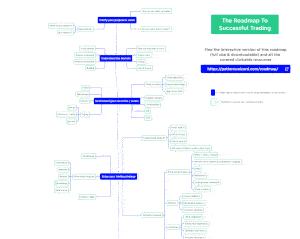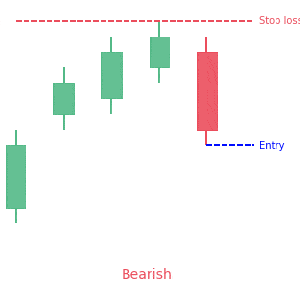- Stock investors can be paid to own stock.
- Dividends are a way for company to share a part of their profits with their shareholders.
- There are many reasons for companies to pay dividends and not to pay dividends and each company can decide.
Dividends are a part of profits that a company earns in a specific financial period and divides it to its shareholders. Dividends are provided only by dividend stocks and dividend-paying companies are generally well-established. A dividend is a kind of reward that companies pay to their shareholders in cash or some other form for their trust and investment. A company’s higher hierarchy decides the amount of dividend after paying the creditors and shareholders consent to that. However, paying dividends isn’t mandatory for all companies and companies may choose between paying dividends or not. But a very pertinent question arises that why do companies pay dividends?
Why do companies pay dividends?
Let’s suppose that you are a stock investor and want to invest in stocks. What will be your first consideration? Of course, it will be an expected return. Whenever someone decides to buy stocks, he/she consider the expected return. Stock investors make money through two main sources – from an increase in stock prices and from dividends even when stock prices fall. So, dividends are one of the two primary sources to get a return on investment. That is why some stock investors prefer dividend stocks and thus, companies paying out dividends are more enticing for such investors.
However, despite the fact that dividend stocks are more attractive for investors, some companies decide against dividend payouts. So, why some companies pay dividends, and why do some companies not pay dividends? Let’s begin to explore reasons for paying dividends.
Reasons for paying dividends
In the simplest of terms, as we already know, dividend-paying companies pay dividends to share profit with and reward their shareholders. Shareholders trust a company and invest a lot of money to buy stocks. Therefore, some companies decide to reward their shareholders because they deserve that. Dividend payout also encourages investors to stick around. However, companies must make a lot of profit first and make dividends available to the shareholders. That is the reason that dividend-paying companies are far more than often well-established companies that generate a lot of revenue and reward their investors after settling with their creditors.
2. To attract more investors
Dividends are one of the two primary ways to achieve a return on investment. Shareholders get dividends even when share prices fall. Therefore, shareholders see dividends as a lucrative source of recurring income. Shareholders even make money during a year when the stock prices of a company continue to fall. Therefore, companies pay stock dividends to keep the faith and trust of existing shareholders. Besides, new shareholders also see a dividend-paying company suitable investment opportunity. Thus, dividends are among the most enticing factors that not only make existing investors stick around but also attract other investors who are attracted by recurring dividend income.
Paying high amounts of dividends ultimately make share prices fall, at least in theory. The effect is generally temporary and doesn’t last for long. Share prices fall because dividend payments substantially decrease a company’s assets. However, stock investors might find such a company as a prospect for a long-term steady income and make their bid more for its shares. High demand for shares raises share price.
4. To provide certainty about financial stability and wellbeing
Companies also decide to pay dividends because they want the world to believe that they are financially stable. Such companies make investors believe that they are safe to invest in. Shareholders also see them as a good investment.
5. To maintain a high-level
Does a company give out dividends in order to maintain a high level? Yes, it is true. Some companies simply decide to pay out a part of their profit as dividends simply to maintain a high-level status. We already know that dividend-paying companies are well-developed companies with lots of revenue to please their shareholders. Such companies, sometimes, see no other opportunities of reinvesting their profits than paying dividends. They pay higher dividends and thus increase demand for their stocks that ultimately help them maintain a high-level status.
Why do some companies not pay dividends?
We understand now why do some companies pay stock dividends but what about the other side of the spectrum? Why do some companies not pay dividends despite so many positive reasons for paying dividends? The fact is, both sides of the spectrum have some good reasons. So, what are the reasons for not paying dividends?
- New companies and quickly expanding companies often decide against the dividend payout. They decide to invest profits into operations and expansion purposes. They don’t prefer to divide the revenue that can prove vital during pivotal growth time periods. Such stocks are known as “growth stocks” and investors consider them lucrative trade-offs in the future.
- When companies plan to grow and develop, they reinvest revenues back into the company. They use cash to grow and develop instead of dividend payout. In doing so, companies also get their share prices high as shareholders see growth potential and stock demand increases.
Can a company temporarily pause or eliminate dividend payout?
Yes, a company can decide to temporarily pause dividend payments or ever stop forever. Financial crises and hardships make companies take drastic actions during drastic periods. The world has already seen General Motors (GM) do the similar. GM paused dividend payouts during the auto industry crisis in 2008 to avoid bankruptcy. The company resumed dividend payments after six years in 2014. Again in 2020, GM announced to pause dividend payments again on its common stocks to preserve cash. As of June 2021, the company hasn’t announced to resume dividend payout.
The wrap-up
Dividend stocks are those companies that promise to pay dividends to their shareholders. Such companies are generally well-established and developed with lots of revenue and profit. Dividends are a part of the profit that a company decides to share with its shareholders. “Why companies pay dividends” is a pertinent question. There are multiple reasons for paying dividends. Companies look to foster goodwill among their existing stockholders, send a clear message of their financial stability and wellbeing, attract new investors, and increase demand for the stocks through dividends payout.
On the flip side, there is another very apt question. Why do some companies not pay dividends? The answer is new companies focus only on growth and expansion. They don’t prefer to share cash that is vital for operations. On the other hand, some developed companies also decide to grow and develop. Therefore, they also choose not to pay dividends to their shareholders. It is also possible that some dividend stocks temporarily pause or stop dividend payout and resume again after some time. So, it is not mandatory for companies to pay dividends, and the board of directors of a company takes the final decision according to their own planning and strategy.

 Good Trading requires the Best Charting Tool!
Good Trading requires the Best Charting Tool!

 We loved Marwood Research’s course “Candlestick Analysis For Professional Traders“. Do you want to follow a great video course and deep dive into 26 candlestick patterns (and compare their success rates)? Then make sure to check this course!
We loved Marwood Research’s course “Candlestick Analysis For Professional Traders“. Do you want to follow a great video course and deep dive into 26 candlestick patterns (and compare their success rates)? Then make sure to check this course!